Cybersecurity
What is Cybersecurity?
Cybersecurity is the protection of internet-connected systems such as hardware, software and data from cyberthreats. The practice is used by individuals and enterprises to protect against unauthorized access to data centers and other computerized systems. (Source)
$172b
Global Market Size
(2023)
(2023)
$2.3b
VC funding into cybersecurity start-ups as of March 2024
3.5m
Cybersecurity workers needed by 2025
$122k
Median annual salary of cybersecurity professionals
Cybersecurity Pathways
Questions to Consider
- Do you enjoy coming up with innovative solutions to identify and address vulnerabilities and strengthen a network’s protections?
- Are you open to keep learning new technologies every few months and willing to keep up with the fast pace of the cybersecurity and tech world?
- Are you comfortable working independently for many hours at a time?
- Are you able to concentrate on one task for extended periods of time?
Top Cybersecurity Careers
- Cybersecurity Engineer: Cyber engineers incorporate electrical engineering and computer science to understand cyberspace. They use skills developed in digital forensics, security policy and network defense to perform cybersecurity tasks, as well as work on engineering hardware and software.(Source)
- Cybersecurity Architect: A cybersecurity architect (sometimes just called a “security architect”) is responsible for designing, creating, and maintaining the security systems within an organization's IT network, including the computer systems and data. In other words, they are the go-to person, the one in charge, in the area of cybersecurity. (Source)
- Penetration Tester (aka Ethical Hackers): Penetration testers, or pen testers for short, perform simulated cyberattacks on a company’s computer systems and networks. These authorized tests help identify security vulnerabilities and weaknesses before malicious hackers have the chance to exploit them. (Source)
Top Cybersecurity Companies
- Palo Alto Networks, Inc.
- McAfee
- BlackBerry
- Hillstone Networks
- Bugcrowd
Related College Majors
- Computer Science
- Database Management
- Information Technology Management
- Cybersecurity (if available)
Next Frontier Industry Roadmap:
Cybersecurity
Want to start a career in cybersecurity but don't know where to begin? Start here!
- Do your research
Make sure you're well-versed in the basics. What is cybersecurity? What's driving it? Who are the innovators? What types of cybersecurity jobs exist? What are the major cybersecurity companies? If you're interested in a specific company, be sure to learn about its culture and values. This can make a huge difference in your job search!
2. Hone your "soft" skills
- Critical thinking: As a cybersecurity professional, you must be able to examine things from all angles using abstract logic. This approach is essential for tasks ranging from routine network troubleshooting to managing a security breach.
- Attention to detail: Entry-level cybersecurity jobs are known to be highly detailed at points. Candidates for these positions need to be extremely methodical and organized and must stay focused even through tedious, repetitive tasks. (source)
- Solid communication: Communication skills include active listening, which is essential in cybersecurity since you will be working on a team of other professionals where you are required to give and received regular updates. You may also be expected to convey the urgency of potential security threats to non-technical professionals and guide a company-wide security plan. (source)
3. Learn the essentials
There are several cybersecurity certifications that can get your career started, but a college degree is commonly required to progress in your career if you don't already have extensive experience in the field. You should also:
- Be well-versed in the fundamentals of IT, such as administering & configuring systems, networks, database management, and coding
- Have strong programming skills in Java, JavaScript, C++, Python, and SQL
- Have a strong foundation is science and mathematics, and a basic understanding of engineering principles
4. Build your portfolio
There a several ways your can bolster your cybersecurity portfolio, such as attaining certifications, especially ones that align with your chosen career path. You can also pick a cybersecurity tool such as Nmap, Wireshark, Nessus, BurpSuite or one that interests you and become an expert!
Also make sure your LinkedIn profile is up-to-date with your latest experiences and accomplishments and optimized using our Base 11 LinkedIn Optimization Guide.
Also make sure your LinkedIn profile is up-to-date with your latest experiences and accomplishments and optimized using our Base 11 LinkedIn Optimization Guide.
5. Gain hands-on experience
Although a co-op position or internship will help you get a sense of IT procedures and real-world business operations, try competing in capture-the-Flags (CTFs) competitions and doing online challenges. Those not only develop your technical skills, but they also train your puzzle-solving skills and creativity, which can be just as valuable than most certifications. (source)
6. Engage your community
Cultivate your network with a Base 11 community of like-minded individuals that you can connect with today using the community feature built right into this platform! We have a thriving community of students, early-career adults, and professionals on our discussion forums who can share insights, give advice, and help you on your STEM journey.
A Day in the Life of a
Cybersecurity Architect
Coming Soon: experience what a day in the life of a Cybersecurity professional is like!
Write your awesome label here.
Additional Resources
Jobs & Internships
Exclusive opportunities including academic and professional internships as well as jobs from our Next Frontier Partners
Courses & Training
Free and discounted courses and training programs designed to accelerate members into the STEM career of their dreams
Innovation Challenges
Solve real-world problems posed by top companies in STEM and earn cash prizes as well as potential employment opportunities

